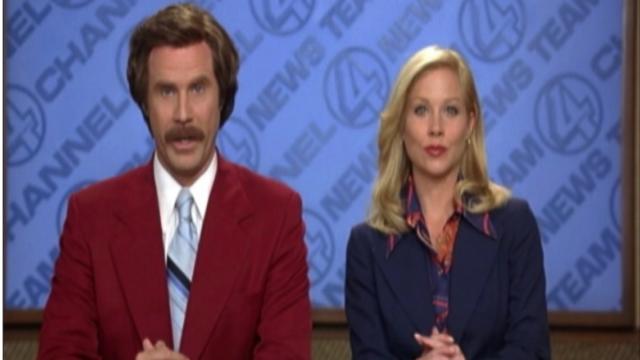Directed by: David O. Russell
Starring: Christian Bale, Amy Adams, Bradley Cooper, Jennifer Lawrence, Jeremy Renner, Robert DeNiro, Louis CK
American Hustle is a movie in which characters are either conning or being conned (and perhaps both at once). Based very loosely on the late 70s and early 80s Abscam sting operations, American Hustle elevates its people and their situations to high comedy. Writer-director Russell takes the right approach with humor. Being a con artist and scammer must be a lonely, pressure cooker lifestyle to lead. One has to wonder if working for a living can possibly be as rough. Russell sees the absurdity in this and plays straight to it.
The film centers around Irving Rosenfeld (Bale), who in the opening scene is carefully placing his toupee atop his ever-balding head. He and his partner/lover Sydney Prosser (Adams) are assisting FBI agent Richie DiMaso (Cooper) in nabbing congressmen and other dignitaries taking bribes. Working with a showoff hothead like Richie is wearing on them, mostly because he threatens to send the two to jail if they don't cooperate. Things were much simpler for them when they were conning well-off, but desperate people with promises of big-time loans for a "small" non-refundable fee. The loans rarely materialized, but they kept out of trouble until the FBI caught up to them.
Irving is also married to chain-smoking, hard-drinking, pill-popping Rosalyn (Lawrence), whose child Irving adopted and adores. The mother, not so much. Rosalyn keeps Irving on the line by threatening to take their child from him if he tries to divorce her. Life was wearying enough for Irving even before the FBI came into his life. Things only become much more complicated from there.
The FBI targets Camden mayor Carmine Polito (Renner), who is looking to build up Atlantic City's fledgling casino business and needs funding to do it. Polito is a family man with a big heart who knows the only way to get things done is to grease the palms of those who can makes things happen. Irving gets close to Carmine to ensure he will take an unwitting part in the sting operation. Trouble is, Irving begins to like his target and undergoes serious inner conflict as it becomes more apparent that Carmine will go to jail for his role in bribing public officials. Carmine is oddly the most honest person in the film, who does what he does because he loves people and wants to restore New Jersey to prominence.
The plot has further complications, as you would expect, and trying to explain those will not only spoil the fun, but will likely drive me mad. Besides, enjoyment of American Hustle is based more on these characters and Russell's approach to them. You may not necessarily recognize Christian Bale under the bad toupee, beard, and ever-bulging waistline. His suits are ill-fitting and he is sloppy-looking, but he's smart and cunning. He is able to weave his way through this maze of stress and pressure because of his street-honed instincts. We sympathize with him because even though he makes his living out of scamming people, how did he ever suspect he would have to put up with so much? It is a great piece of acting from Bale.
Sydney adopts the persona of Lady Edith for the scams, but she also does it to escape being an ordinary woman from New Mexico with few prospects of success in life. Adams is terrific here as well, mostly because she is at her heart the most conflicted of the group. She loves Irving, but may even be falling for Richie, or is she? Being a con artist means having to deny your true feelings in order to make the con work. Doing that wears on Sydney, who really is only looking for safety and love, both of which are in short supply in her world.
The other extreme is Richie, a loud hothead who is using the scams to launch his FBI career. Cooper has a blast playing him in all of his over-the-top glory. He seems eternally frustrated, mostly because failing would ruin him, and also because he is sweet on Sydney/Lady Edith. Richie is a morass of frustrated ambitions and bad temper under a bad perm which he lovingly tends to in his cramped apartment shared by his mother and fiancée. He thinks he can control things, but he finds too late that he is way out of his league. This is a trait he shares with Rosalyn, who really only wants to stay home, avoid people, and create a home with Irving. Jennifer Lawrence creates a desperate, love-starved Rosalyn whose true feelings for Irving come out in a verbal showdown with Sydney. We pity her, even though she blows up the microwave oven and starts fires.
Russell's gift is allowing us to care for this hodgepodge of desperate, needy people while moving the plot along to a satisfying conclusion where everyone gets what they want or gets what's coming to them. Most of American Hustle is funny and at times outrageous, but it has to be. We laugh so we may not cry for these people who only want to safely love someone without being conned.

